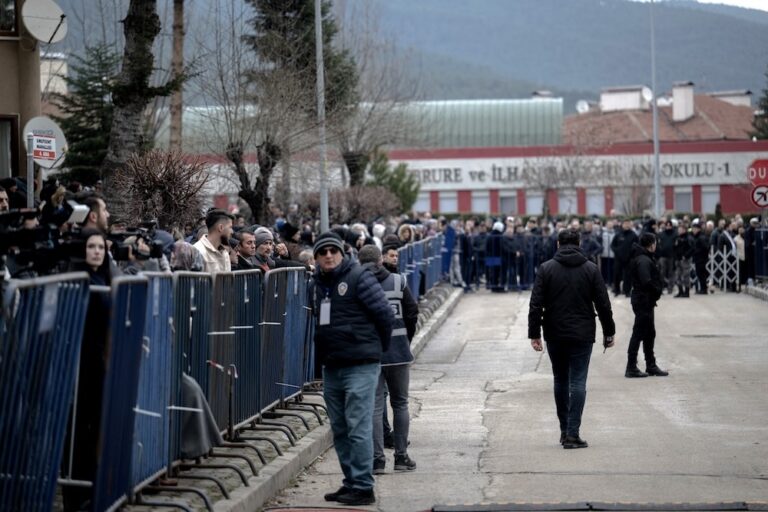The prison management destroyed an unpublished book by Halil Gundogan because it supposedly "contained objectionable expressions that praised a terrorist organisation."
(BIANET/IFEX) – 9 September 2011 – The Turkish PEN Centre has condemned the management of the Sincan prison (Ankara) for the seizure and destruction of a work by writer Halil Gundogan. The announcement was signed by Halil Ibrahim Ozcan, chairman of the Turkish chapter of the Writers in Prison Committee of International PEN. It read, “We strongly condemn the management of the Sincan No.1 F Type Prison for considering the 200-page work of convicted writer Halil Gundogan a ‘letter’ and destroying it. We emphasize once more our wish to live in a country that is not afraid of books.”
The Turkish Writers Union previously issued a statement criticizing the seizure of Gundogan’s unpublished book by the prison management. “Judging an idea before it is put into action is not a democratic but rather a fascist move,” the union said.
Gundogan wrote the second volume of his book entitled “A Fugitive’s Story, from Metris to Munzur” while he was in prison. The first volume was published in 2005. He gave the second volume to the prison managers in order to have it handed over to his visitors. However, the work was never given to the writer’s visitors. Instead the prison management seized the as yet unpublished work and decided to destroy it because it supposedly “contained objectionable expressions that praised a terrorist organization and the illegal activities of its members.” Gundogan spoke out against the decision but his objection was dismissed. The writer’s lawyer applied to the courts requesting the return of the only copy of the book and the reversal of the decision, but this request was declined as well.
The manuscript given to the prison management by Gundogan consisted of 200 handwritten pages and was the only existing version of the book. Gundogan’s family and his lawyer deemed the decision “arbitrary” and criticized the prison managers for the destruction of the book.
Gundogan was taken into custody after the coup d’état in Turkey in 1980. He originally faced the death penalty in a trail that focused on the clandestine Turkey Communist Party/Marxist-Leninist (TKP/ML) and its armed faction, the Turkish Workers’ and Peasant’s Liberation Army (TIKKO). In 1988, he fled from the Metris prison (Istanbul) with 28 other convicts by digging a tunnel. He was arrested again in 1995 and handed a sentence of life imprisonment.
In the first volume of the book, the writer described in detail his escape from Metris Prison.


